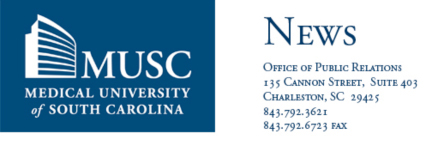
June 23, 2008
CHARLESTON -- Researchers at the Medical University of South Carolina (MUSC) and three other universities announced the results of a four-year pilot study, which tested the long-term response to Vagus Nerve Stimulation (VNS) TherapyTM as an add-on treatment in patients with treatment-resistant anxiety disorders. The study, led by Mark S. George, M.D., MUSC Distinguished Professor of Psychiatry, Radiology and Neurosciences, appeared in the 2nd issue of peer-reviewed Brain Stimulation (www.brainstimjrnl.com).
"Despite the availability of many treatments for anxiety disorders, only a minority of patients experience treatment-response, especially with obsessive compulsive disorder (OCD)," George said. "Data suggests VNS Therapy might be a potential long-term treatment for anxiety disorders. We are encouraged to see the unique benefits of VNS therapy for patients with treatment-resistant anxiety disorders."
The FDA approved VNS Therapy in 2005 as an adjunctive long-term treatment for chronic or recurrent depression for patients (18 years of age or older) who are experiencing a major depressive episode and have not had an adequate reaction to four or more antidepressant treatments. It is the only device ever studied and approved for treatment-resistant depression. VNS Therapy is delivered from a small pacemaker-like device implanted in the chest area that sends mild pulses to the brain via the vagus nerve in the neck.
The study, which focused on patients with obsessive-compulsive disorder, panic disorder, and posttraumatic stress disorder, demonstrated VNS Therapy was well tolerated by a small group of participants. In addition, patients who responded to VNS Therapy continued to experience significant improvements.
About MUSC
Founded in 1824 in Charleston, The Medical University of South Carolina is the oldest medical school in the South. Today, MUSC continues the tradition of excellence in education, research, and patient care. MUSC educates and trains more than 3,000 students and residents, and has nearly 11,000 employees, including 1,500 faculty members. As the largest non-federal employer in Charleston, the university and its affiliates have collective annual budgets in excess of $1.6 billion. MUSC operates a 750-bed medical center, which includes a nationally recognized Children's Hospital and a leading Institute of Psychiatry. For more information on academic information or clinical services, visit www.musc.edu or www.muschealth.com.
#####